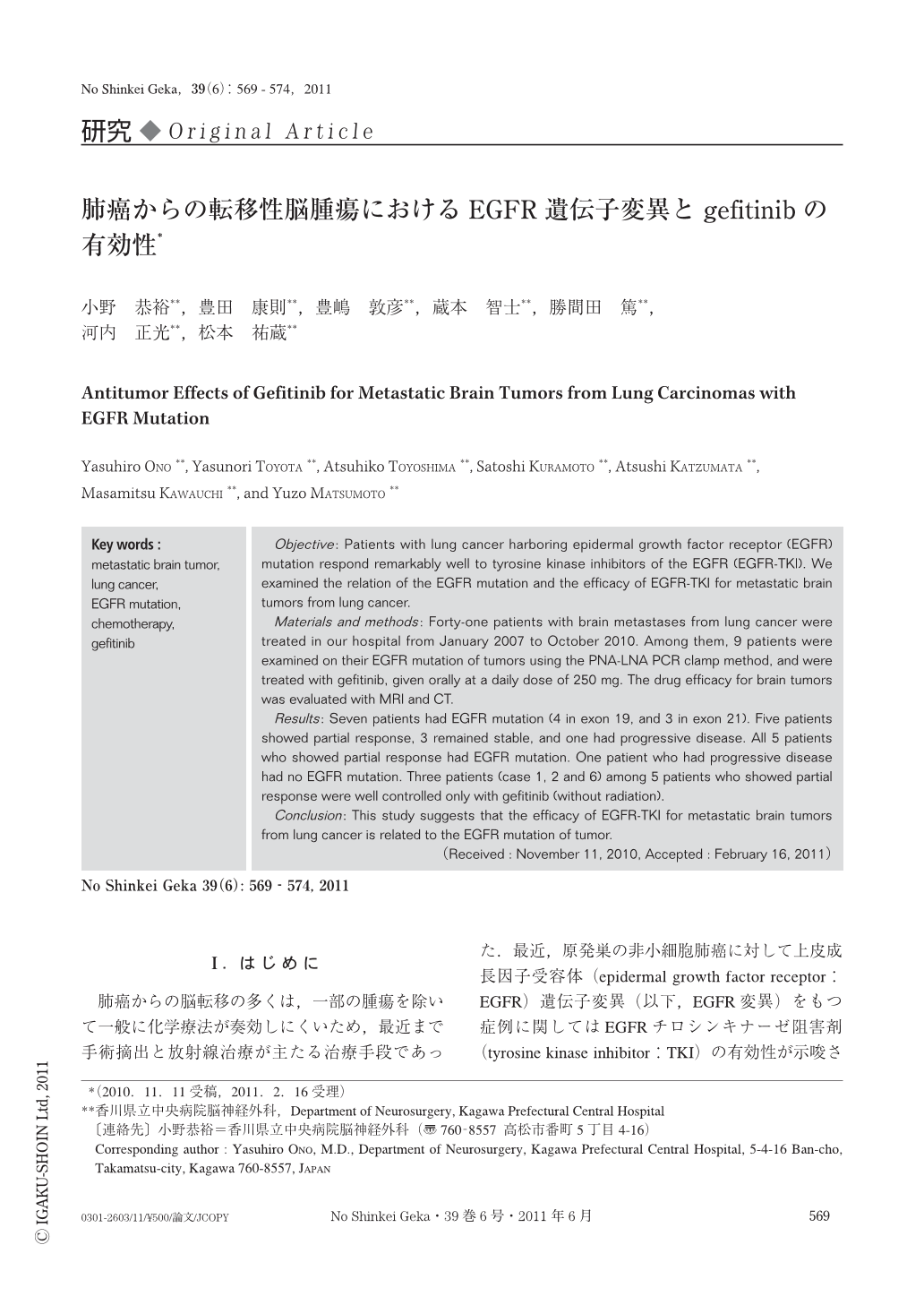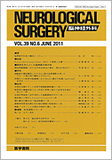Japanese
English
- 有料閲覧
- Abstract 文献概要
- 1ページ目 Look Inside
- 参考文献 Reference
Ⅰ.はじめに
肺癌からの脳転移の多くは,一部の腫瘍を除いて一般に化学療法が奏効しにくいため,最近まで手術摘出と放射線治療が主たる治療手段であった.最近,原発巣の非小細胞肺癌に対して上皮成長因子受容体(epidermal growth factor receptor:EGFR)遺伝子変異(以下,EGFR変異)をもつ症例に関してはEGFRチロシンキナーゼ阻害剤(tyrosine kinase inhibitor:TKI)の有効性が示唆されている6,7,11).今回,われわれは非小細胞肺癌の転移性脳腫瘍においてEGFR変異とEGFR-TKIの初期治療としての抗腫瘍効果について検討を行った.
Objective: Patients with lung cancer harboring epidermal growth factor receptor (EGFR) mutation respond remarkably well to tyrosine kinase inhibitors of the EGFR (EGFR-TKI). We examined the relation of the EGFR mutation and the efficacy of EGFR-TKI for metastatic brain tumors from lung cancer.
Materials and methods: Forty-one patients with brain metastases from lung cancer were treated in our hospital from January 2007 to October 2010. Among them, 9 patients were examined on their EGFR mutation of tumors using the PNA-LNA PCR clamp method, and were treated with gefitinib, given orally at a daily dose of 250 mg. The drug efficacy for brain tumors was evaluated with MRI and CT.
Results: Seven patients had EGFR mutation (4 in exon 19, and 3 in exon 21). Five patients showed partial response, 3 remained stable, and one had progressive disease. All 5 patients who showed partial response had EGFR mutation. One patient who had progressive disease had no EGFR mutation. Three patients (case 1, 2 and 6) among 5 patients who showed partial response were well controlled only with gefitinib (without radiation).
Conclusion: This study suggests that the efficacy of EGFR-TKI for metastatic brain tumors from lung cancer is related to the EGFR mutation of tumor.

Copyright © 2011, Igaku-Shoin Ltd. All rights reserved.


